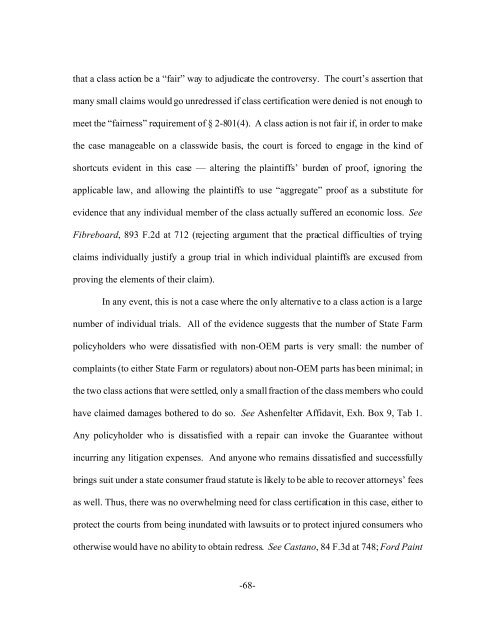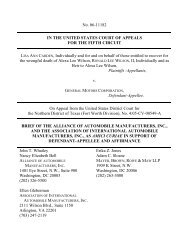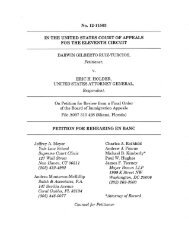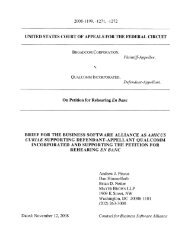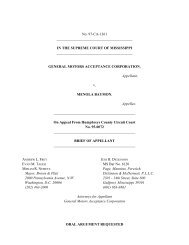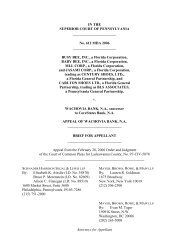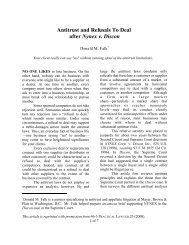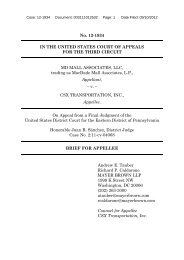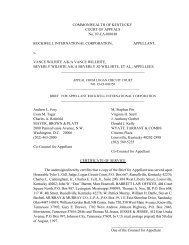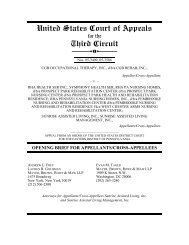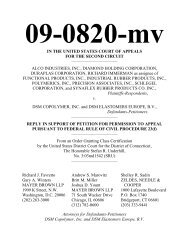No. 5-99-0830 IN THE APPELLATE COURT OF ... - Appellate.net
No. 5-99-0830 IN THE APPELLATE COURT OF ... - Appellate.net
No. 5-99-0830 IN THE APPELLATE COURT OF ... - Appellate.net
Create successful ePaper yourself
Turn your PDF publications into a flip-book with our unique Google optimized e-Paper software.
that a class action be a “fair” way to adjudicate the controversy. The court’s assertion that<br />
many small claims would go unredressed if class certification were denied is not enough to<br />
meet the “fairness” requirement of § 2-801(4). A class action is not fair if, in order to make<br />
the case manageable on a classwide basis, the court is forced to engage in the kind of<br />
shortcuts evident in this case — altering the plaintiffs’ burden of proof, ignoring the<br />
applicable law, and allowing the plaintiffs to use “aggregate” proof as a substitute for<br />
evidence that any individual member of the class actually suffered an economic loss. See<br />
Fibreboard, 893 F.2d at 712 (rejecting argument that the practical difficulties of trying<br />
claims individually justify a group trial in which individual plaintiffs are excused from<br />
proving the elements of their claim).<br />
In any event, this is not a case where the only alternative to a class action is a large<br />
number of individual trials. All of the evidence suggests that the number of State Farm<br />
policyholders who were dissatisfied with non-OEM parts is very small: the number of<br />
complaints (to either State Farm or regulators) about non-OEM parts has been minimal; in<br />
the two class actions that were settled, only a small fraction of the class members who could<br />
have claimed damages bothered to do so. See Ashenfelter Affidavit, Exh. Box 9, Tab 1.<br />
Any policyholder who is dissatisfied with a repair can invoke the Guarantee without<br />
incurring any litigation expenses. And anyone who remains dissatisfied and successfully<br />
brings suit under a state consumer fraud statute is likely to be able to recover attorneys’ fees<br />
as well. Thus, there was no overwhelming need for class certification in this case, either to<br />
protect the courts from being inundated with lawsuits or to protect injured consumers who<br />
otherwise would have no ability to obtain redress. See Castano, 84 F.3d at 748; Ford Paint<br />
-68-


